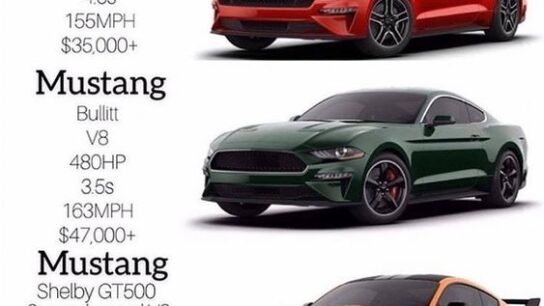In today’s fast-paced world, where personal and professional lives often intersect on the road, understanding consumer trends and preferences for highway cars is more important than ever. Whether you’re a potential car buyer, an automotive enthusiast, or just curious about what drives the car market, this blog will provide an in-depth look at the key factors shaping the industry. With a focus on the latest consumer preferences and emerging trends, you’ll gain valuable insights into what makes a highway car not only desirable but also practical.
Table of Contents

Understanding Highway Cars
Highway cars, often referred to as highway vehicles, are specifically designed to excel on long journeys and extended road trips. These cars are characterized by features that enhance comfort, efficiency, and safety during highway driving. Unlike city cars, which prioritize maneuverability and compact design, highway cars are built to handle sustained speeds, provide ample comfort, and deliver a smooth driving experience over long distances.more informations
Key Consumer Trends and Preferences for Highway Cars
1. Fuel Efficiency and Eco-Friendly Technologies
One of the most significant trends in the automotive industry is the increasing emphasis on fuel efficiency and eco-friendly technologies. Consumers are becoming more environmentally conscious and are seeking vehicles that not only reduce their carbon footprint but also offer lower operating costs.
Hybrid and Electric Vehicles: Hybrid and electric vehicles are at the forefront of this trend. With advancements in battery technology and increased availability of charging infrastructure, consumers are more inclined to consider these options. The hybrid models offer the benefit of both electric power and traditional fuel, while electric vehicles (EVs) provide a zero-emissions alternative.
Fuel-Efficient Gasoline Engines: For those who are not ready to make the leap to hybrids or electric vehicles, there is still a strong demand for fuel-efficient gasoline engines. Advances in engine technology, such as turbocharging and direct fuel injection, have led to improved fuel economy without sacrificing performance.
2. Advanced Safety Features
Safety remains a top priority for consumers when selecting a highway car. The latest safety features have become standard or highly desirable options in new vehicles. Key technologies that are influencing consumer preferences include:
Adaptive Cruise Control: This feature automatically adjusts the car’s speed to maintain a safe distance from the vehicle ahead. It is particularly useful on long highway drives where maintaining a constant speed and distance can reduce driver fatigue.
Automatic Emergency Braking: This system can detect an imminent collision and apply the brakes if the driver does not respond in time. It helps prevent accidents and enhances overall road safety.
Lane Departure Warning and Assist: Lane departure warning alerts drivers if they are drifting out of their lane, while lane assist can gently steer the car back into its lane if necessary.
Blind Spot Monitoring: This feature helps drivers avoid collisions when changing lanes by alerting them to vehicles in their blind spots.
3. Comfort and Convenience
Highway driving often involves long hours on the road, making comfort and convenience essential for a pleasant driving experience. Consumers are looking for features that enhance their comfort and make long trips more enjoyable.
Spacious Interiors: Ample legroom, headroom, and cargo space are crucial for highway cars. A spacious interior allows for a more comfortable ride, particularly on long journeys.
Premium Materials: High-quality materials in the cabin, such as leather upholstery, soft-touch surfaces, and high-end trim, contribute to a more luxurious driving experience.
Advanced Infotainment Systems: Modern infotainment systems offer features like large touchscreen displays, smartphone integration (e.g., Apple CarPlay and Android Auto), and voice control. These features make it easier to stay connected and entertained while on the road.
Comfort Features: Climate control systems, heated and ventilated seats, and adjustable lumbar support are examples of comfort features that enhance the driving experience, especially on long trips.

4. Technological Integration
As technology continues to advance, consumers expect their vehicles to be equipped with the latest tech innovations. Technological integration plays a significant role in consumer preferences for highway cars.
Connectivity: Seamless connectivity features, such as Wi-Fi hotspots and advanced navigation systems, are highly sought after. These features keep drivers and passengers connected and informed during their journeys.
Driver Assistance Systems: In addition to safety features, driver assistance systems like parking assist, rearview cameras, and traffic sign recognition are becoming standard in many vehicles. These systems aid in navigation and maneuvering, making highway driving more manageable.
Over-the-Air Updates: The ability to receive software updates remotely is becoming a significant trend. This feature allows vehicles to stay current with the latest software improvements without requiring a visit to the dealership.
5. Performance and Driving Experience
While comfort and safety are crucial, the driving experience remains a significant factor for many consumers. Highway cars are often expected to deliver a balance of power, handling, and efficiency.
Engine Options: Consumers have diverse preferences when it comes to engine options. Some prefer the power and performance of larger engines, while others prioritize the efficiency and smoothness of smaller, turbocharged engines.
Ride Quality: A smooth and stable ride is essential for highway driving. Suspension systems and chassis tuning play a critical role in delivering a comfortable driving experience over long distances.
Handling and Maneuverability: Even though highway driving often involves straight roads, handling and maneuverability are still important. Consumers look for vehicles that offer responsive steering and predictable handling.
6. Cost and Value
Cost considerations are always a significant factor in vehicle purchasing decisions. Consumers seek highway cars that offer good value for money, balancing initial costs with long-term expenses.
Purchase Price: The initial cost of the vehicle is a major consideration. While luxury features and advanced technologies can drive up the price, many consumers are looking for vehicles that offer a good balance between features and affordability.
Ownership Costs: Beyond the purchase price, consumers also consider factors like fuel economy, maintenance costs, and resale value. Vehicles with lower ownership costs and higher resale values are often more attractive.
Incentives and Rebates: Government incentives and manufacturer rebates can influence purchasing decisions, especially for hybrid and electric vehicles. These financial incentives can make more advanced and eco-friendly options more accessible.
Emerging Trends and Future Outlook
As the automotive industry continues to evolve, several emerging trends are likely to shape consumer preferences for highway cars in the coming years.
Autonomous Vehicles
The development of autonomous driving technology is set to revolutionize the automotive industry. While fully autonomous vehicles are not yet commonplace, advancements in this area will likely influence consumer expectations for highway cars. Features like hands-free driving and advanced driver assistance systems are paving the way for a future where highway driving could become more automated.
Sustainability and Green Technology
Sustainability is becoming a key focus for both consumers and manufacturers. Future highway cars are expected to incorporate even more green technologies, such as hydrogen fuel cells and improved battery technologies. As awareness of environmental issues grows, consumers will likely demand vehicles that align with their values.
Smart Connectivity
The integration of smart technology into vehicles will continue to advance. Future highway cars may offer even more advanced connectivity options, including seamless integration with smart home systems and enhanced AI-driven features that personalize the driving experience.
Conclusion
Consumer trends and preferences for highway cars are evolving rapidly, driven by advancements in technology, a growing emphasis on sustainability, and a desire for enhanced comfort and safety. From fuel efficiency and eco-friendly technologies to advanced safety features and technological integration, today’s consumers are seeking vehicles that offer a perfect blend of performance, comfort, and value.More information






[…] Automatic Emergency Braking (AEB) is a crucial safety feature that can prevent or mitigate collisions. AEB uses sensors and cameras to monitor the road ahead for potential obstacles or vehicles. If the system detects an imminent collision, it will automatically apply the brakes to reduce the impact or avoid the accident altogether. This feature is particularly useful in emergency situations where the driver may not have enough time to react.click here […]